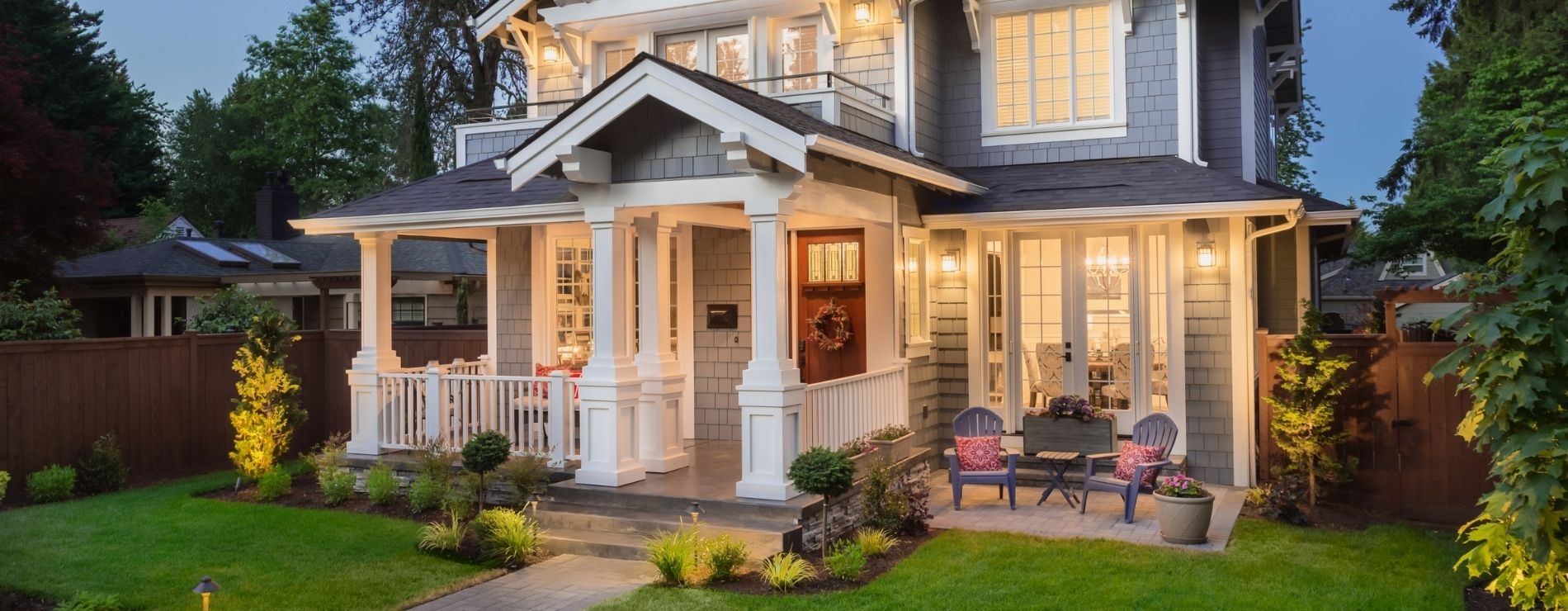
Is a No Closing Cost Mortgage Right for You?
Are you considering a no closing cost mortgage but have questions about how it works and whether it’s the right option for you? Look no further. In this guide, we’ll answer the most frequently asked questions about no closing cost mortgages and provide you with the information you need to make an informed decision.
See Also:
- Closing Costs – How Much are Costs & Who Pays Them?
- Lender Credits 101 – Maximize your homebuying budget
Are you in the process of buying or refinancing a home and wondering about the costs involved?
Closing costs are a significant expense that can impact your budget when purchasing or refinancing a home.
One option is a no-closing-cost mortgage.
As the name suggests, this type of mortgage allows you to avoid paying the closing costs associated with a home loan.
Instead, the lender covers these costs in exchange for a slightly higher interest rate or loan amount.
While a no-closing-cost mortgage can be an attractive option for many borrowers, it’s essential to understand the trade-offs involved.
What is a no-closing-cost mortgage?
A no-closing-cost mortgage is a home loan where the borrower does not have to pay any closing cost fees at the time of closing.
Closing costs are fees paid to various parties involved in the home-buying process, such as the lender, title company, and government agencies.
These fees can add up to several thousand dollars and typically include expenses such as appraisal fees, credit report fees, title and escrow fees, and mortgage origination fees.
In a no-closing-cost mortgage, the lender covers some or all of the closing costs in exchange for a slightly higher interest rate or loan amount.
This means that the borrower does not have to pay any out-of-pocket expenses at the time of closing but may end up paying more over the life of the loan due to the higher interest rate.
No-closing cost mortgages can be a good option for borrowers who have limited funds for upfront expenses or who want to reduce their out-of-pocket costs.
How much are closing costs to buy a home vs. refinance
Closing costs for buying a home or refinancing a mortgage can vary depending on factors such as the type of loan, the loan amount, and the home’s location.
However, in general, the closing costs for a home purchase are typically higher than those for a refinance.
When buying a home, closing costs typically range from 2% to 5% of the total loan amount. For example, on a $300,000 home purchase, closing costs could range from $6,000 to $15,000.
These costs include fees for services such as the appraisal, credit report, title and escrow fees, county recording fees, homeowners insurance, and mortgage origination fees.
On the other hand, closing costs for a mortgage refinance are usually lower and can range from 1% to 3% of the total loan amount.
For example, on a $300,000 mortgage refinance, closing costs could range from $3,000 to $9,000. These costs may include fees for services such as appraisal, credit report, title search, title insurance, and loan origination fees.
Closing costs can be significant for home buyers looking to buy a home and homeowners looking to refinance their mortgage.
See also: Can closing costs be rolled in?
No closing cost mortgage benefit
By opting for a no-closing-cost mortgage, borrowers can avoid the upfront costs typically associated with a mortgage and make it more affordable to enter the housing market or refinance their home.
This can be especially helpful for those who have limited funds for closing expenses or who want to reduce their out-of-pocket costs.
Enter the housing market sooner.
By eliminating the need to pay thousands of dollars in closing costs, borrowers can free up funds for other expenses and potentially enter the housing market sooner.
For example, a borrower is interested in purchasing a $300,000 home but needs more funds to cover the down payment and the closing costs, which could add up to $6,000 or more.
Suppose the borrower opts for a no-closing-cost mortgage.
In that case, the lender covers the closing costs, and the borrower can now purchase the home without having to save for multiple years to cover the closing expenses and the down payment.
No cost mortgage can also be helpful for borrowers who want to avoid paying private mortgage insurance (PMI) on a conventional mortgage.
By applying what they would have paid for closing costs toward their down payment, borrowers can potentially reach the 20% down payment threshold required to avoid PMI.
How it works
A no-closing-cost mortgage allows the borrower to avoid paying the closing fees associated with a home loan.
These fees, known as closing costs, can add up to several thousand dollars and typically include expenses such as appraisal fees, credit report fees, title and escrow fees, mortgage origination fees, county recording, and transfer fees, etc.
In a no-closing-cost mortgage, the lender covers some or all of the closing costs with a lender credit in exchange for a slightly higher interest rate or loan amount.
This means that the borrower does not have to pay any out-of-pocket expenses at the closing. Instead, the closing costs are rolled into the loan amount or paid for by the lender through a higher interest rate over the life of the loan.
For example:
Let’s say a borrower is refinancing their existing $200,000 mortgage and the closing costs are estimated to be around $4,000.
In a traditional mortgage, the borrower would need to pay $4,000 out-of-pocket at closing or if there is equity, the borrower can roll the costs into the loan.
However, if the borrower opts for a no-closing-cost mortgage, the lender covers the $4,000 in closing costs, but the borrower may have a slightly higher interest rate or loan amount over the life of the loan.
In this scenario, the borrower may choose to take out a 30-year fixed-rate mortgage with a slightly higher interest rate of 4.5% instead of the 4.25% rate offered with a traditional mortgage.
Alternatively, the borrower may have a slightly higher loan amount, such as $204,000 instead of the original $200,000, to cover the closing costs.
Know Your DTI (Debt-to-Income Ratio)
Debt-to-income (DTI) ratio is a financial metric that compares your monthly debt payments to your monthly income. It’s used by lenders to assess your ability to repay a home loan.
Lenders that offer no closing cost mortgage
We, Coole Home offer a no-closing cost mortgage.
No-closing-cost mortgages are offered by a variety of lenders, including banks, credit unions, and mortgage brokers.
Some lenders may offer this option as a standard product, while others may offer it on a case-by-case basis, depending on the borrower’s financial situation and creditworthiness.
Some lenders may only cover certain types of closing costs, such as title insurance or appraisal fees, while others may cover all of the closing costs associated with the loan.
While no-closing-cost mortgages are available on many loan programs, not all lenders offer them, and there may be limitations based on your specific situation.
For example, some lenders may only offer no closing cost mortgages on certain types of loans, such as fixed-rate mortgages, while others may only offer them to borrowers with excellent credit or a certain debt-to-income ratio.
Next up:
No Closing Cost Mortgage Alternatives
Negotiating with the seller to cover some or all of the closing costs can be a great way to reduce closing costs expenses.
However, in a seller’s market or when inventory is low, sellers may be less willing to negotiate on closing costs or may receive multiple offers and choose a buyer who doesn’t require them to cover these expenses.
Another option is gift funds.
Many mortgage programs allow borrowers to receive gift funds from family members or other sources to cover closing costs.
However, ensuring the gift is documented correctly and meets the lender’s requirements is important.
For example, the contribution must be accompanied by a gift letter that includes the giver’s name, relationship to the borrower, the amount of the gift, and a statement indicating that the funds are a gift and do not need to be repaid.
The lender may also require bank statements or other documentation to verify the source of the gift funds.
Please work with your mortgage loan officer to understand their specific requirements for gift funds and ensure that everything is properly documented to avoid any potential issues during the mortgage application process.
No Closing Cost Mortgage
Drawbacks
While a no-closing-cost mortgage can be a great way to reduce closing cost expenses and make homeownership more affordable, there are some potential drawbacks to consider:
Higher interest rate: In exchange for covering the closing costs, lenders may charge a higher interest rate on the loan. This can result in higher monthly payments and a higher overall loan cost.
Longer break-even period: Because the closing costs are rolled into the loan, it can take longer for the borrower to recoup the closing expenses compared to a traditional mortgage. This can disadvantage borrowers who plan to sell or refinance their home soon.
Limited options: Not all lenders offer no closing cost mortgages, and those that do may have limitations on the types of loans or eligible borrowers. This can limit the borrower’s options and make it more difficult to find a loan that fits their specific needs.
Possible higher total costs: While a no-closing cost mortgage can reduce closing expenses, it can also increase the overall cost of the loan over time due to the higher interest rate or larger loan amount. Borrowers should carefully consider the loan’s long-term costs before making a final decision.
Are you ready to apply? Start the process by completing the form below.
